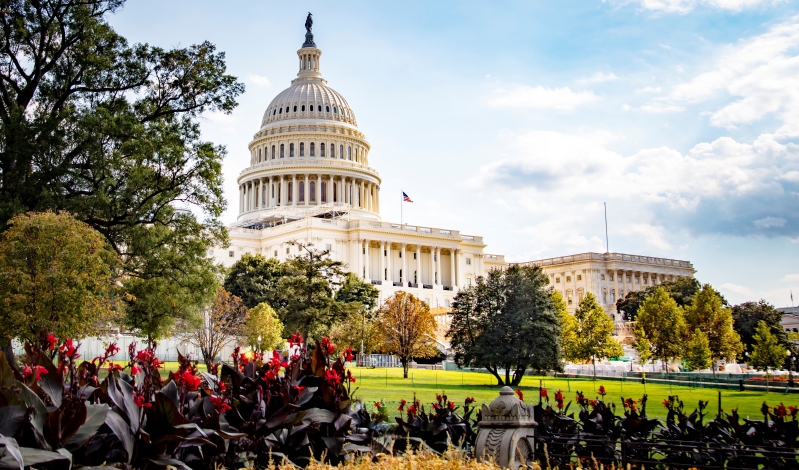
From the New Deal to the present, the Administrative Procedure Act has been the foundation of administrative law.
Seventy-five years have passed since Democrats and Republicans made a “fierce compromise” to pass the Administrative Procedure Act (APA) during the New Deal era. Republicans and their allies argued that the administrative state would threaten individual rights and the free market, while Democrats and New Deal agencies insisted that giving agencies discretionary authority would help address issues from the Great Depression. After World War II, Congress responded to public concern about administrative power and passed the APA, which President Truman signed into law on June 11, 1946.
Under the APA, Congress divides agency action into either “rulemaking,” which encompasses agencies’ forward-looking regulations, or “adjudication,” which covers any action that is not rulemaking. Congress also requires different procedures for different types of rulemaking and adjudication. For example, under the APA, Congress protects individual rights and free markets by establishing notice-and-comment procedures for public participation in rulemaking. It also grants agencies a high level of discretion in employing their expertise.
Today, “the APA has assumed quasi-constitutional status” and its importance has grown with the size and power of the administrative state. In a 2020 report, the U.S. Department of Justice estimated that federal regulations cost between $1.75 and $2 trillion per year, even though they provide less transparency and accountability than formal acts by Congress. Citing excessive costs, the Trump Administration pursued an anti-regulatory agenda. Former President Donald J. Trump authorized 14 Congressional Review Act repeals, canceled 130 rules in his first year, and issued a 1-in-2-out executive order mandating that agencies offset costs by identifying two regulations to eliminate for every new regulation proposed. President Joseph R. Biden revoked that order—contributing to a practice of presidents reversing rules and executive orders from the preceding administration.
Recognizing the problems with using agency regulations to make lasting changes, experts have demonstrated a growing interest in reforming the APA. Congress has not substantially amended the APA in over 40 years. On February 8, 2016, the American Bar Association recommended nine ways that Congress could update rulemaking provisions in the APA. On December 6, 2019, the Justice Department hosted a summit about modernizing the APA and published a record of the event to inform future APA amendments.
The APA continues to be a critical law and valuable source of debate involving questions of due process, government accountability, and separation of powers. In celebration of the 75th Anniversary of the APA, this week’s Saturday Seminar highlights essays published by The Regulatory Review that focus on the APA.
- In an essay, Susan Dudley of the George Washington University Regulatory Studies Center delves into the history behind the enactment of the APA. Through the New Deal, President Franklin D. Roosevelt expanded the scope of agency authority, which called into question the constitutionality of delegating authority to administrative bodies. Congress created the APA in response to the fast expansion of agency powers. Dudley explains that America has undergone waves of regulation and deregulation since the APA’s enactment.
- “The key modern statute that helps ensure bureaucratic justice is the Administrative Procedure Act,” Paul Verkuil of the Administrative Conference of the United States (ACUS) highlights in an essay analyzing Cass Sunstein and Adrian Vermeule’s book, Law and Leviathan: Redeeming the Administrative State. Verkuil recognizes that Americans today do not trust institutions and political leadership, much like Americans during the New Deal era. In light of the Trump Administration’s anti-regulatory attempts, Verkuil supports defending the administrative state’s legitimacy around values such as integrity, honesty, and morality in administrative law and the government as a whole.
- In an essay about ACUS recommendations for interpretive rules, Blake Emerson of the University of California, Los Angeles School of Law and Ronald M. Levin of Washington University in St. Louis School of Law examine the impact of the APA’s exemption of “interpretive rules” and “general statements of policy” from the notice and comment requirements. They explain that agencies must balance efficiency in publishing interpretive rules to describe their understanding of statutes with the public’s need for democratic participation in the rulemaking process. ACUS recommends that changes to interpretive rules should be open for public comment to facilitate public participation. When an agency’s interpretation is exhaustive, however, ACUS recommends not requiring public comment to avoid the misconception that departing from the original interpretation is lawful, Emerson and Levin explain.
- If courts find that a rule violates a procedural requirement, the APA does not require courts to vacate the entire rule, Charles Tyler of Stanford Law School suggests in an essay. Examining the text of the APA, Tyler explains that reviewing courts must “hold unlawful and set aside” any “agency action” that violates requirements but the definition of “agency action” includes “part of a rule.” Tyler argues that the courts’ practice of vacating rules may come from the U.S. Supreme Court’s decision in SEC v. Chenery Corp, but not from the APA’s text. Encouraging agencies to consider severability early in the rulemaking process and solicit public comment on severability will promote greater transparency and predictability in rulemaking, Tyler concludes.
- In an essay, Ming Hsu Chen of University of Colorado Law School explains how Supreme Court decisions on immigration disregard racial animus. In Department of Commerce v. New York, the Court ruled that imposing a citizenship question on the census could be acceptable under the APA’s arbitrary and capricious standard, notwithstanding the resulting lower response rate from immigrants. Chen argues that the Court’s decisions on immigration permit future administrations to perpetuate policies with racially discriminatory consequences—such as suppressing census participation in minority communities.
- Congressional delegations have a time problem, Jonathan H. Adler of Case Western Reserve University School of Law and Christopher J. Walker of Moritz College of Law argue in an essay describing possible solutions to the time gap between initial delegation and the actual use of delegated authority. For example, when the Clean Air Act (CAA) was first written, Congress was not “seriously concerned” about climate change. As a result, solutions to present-day issues do not match the original regulatory scheme under the CAA, the authors explain. Adler and Walker argue that this timing problem leads to inconsistencies in congressional intent and the democratic process. They suggest mandatory reauthorization of statutes governing federal agencies to close discrepancies between delegation and use of delegated authority. They also propose amending the APA concerning judicial review of agency actions to ensure that they remain within the agency’s statutory authority.
The Saturday Seminar is a weekly feature that aims to put into written form the kind of content that would be conveyed in a live seminar involving regulatory experts. Each week, The Regulatory Review publishes a brief overview of a selected regulatory topic and then distills recent research and scholarly writing on that topic.



